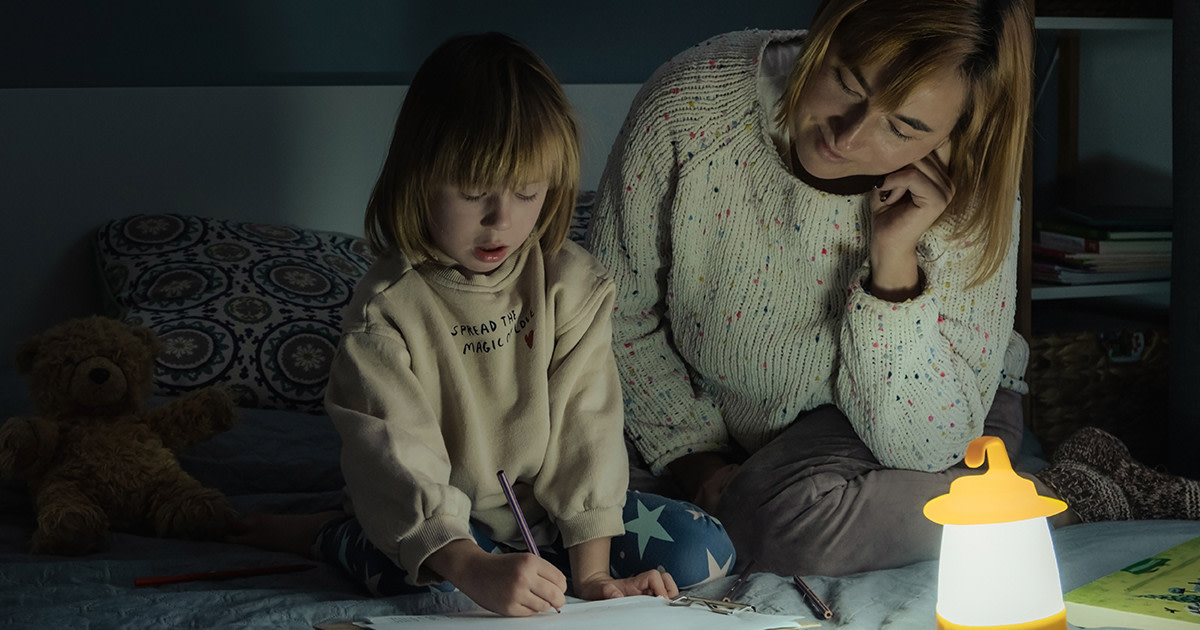What To Do if the Power Goes Out in Your New Home
WHAT YOU'LL LEARN
Who ya gonna call? The utility company!
Why unplugging matters
How temperature changes everything
WHAT YOU'LL LEARN
Who ya gonna call? The utility company!
Why unplugging matters
How temperature changes everything

Picture this: you’ve recently received the keys to your new home. Your home inspection showed all your home’s systems are a “go.” Your family is all moved in, and everyone can’t wait to walk out the front door and start exploring everything the new city has to offer. And then the power goes out. Bummer. What do you do next? You don’t even know the name of the power company, and where’s that breaker box anyway? Power outages, whether it be from natural causes or an overload, can put you, your family, and your new property at risk (if you aren’t prepared). Here’s what you can do when the lights go out.
Make Sure You Have No Power
It may seem obvious, but your first course of action should be determining why you have no power. There’s a chance you just blew a fuse or simply need to replace your lightbulbs. Scope out your main electrical panel to see if the breaker tripped. If flipping that switch (they should be labeled according to room or appliance) doesn’t work, contact an electrician for professional help. But if nothing on the panel seems out of the ordinary, the power outage was likely caused by an external event. Hurricanes, tornadoes, power surges, and heatwaves can all cause roaming outages. Check with your neighbors to see if they’ve lost their power and contact your utility company to file a report—chances are they have an app that gives real-time updates.
Turn Off and Unplug Appliances
Power surges, or when an unexpected increase of voltage travels through a wire and into a device, can cause significant and irreparable damage to your most expensive appliances and electronics. And in the most extreme cases, they can cause fires. It doesn't matter if the power has been out for a couple of hours or a few days, surges are always a threat once the lights come back on, so turn off and unplug your appliances before it’s too late. If too many items are plugged in once power is restored, it could trip a breaker. And while you’re at it, getting some surge protector strips from the hardware store can help protect your appliances, and consolidate all that cord clutter too!
Keep the Refrigerator and Freezer Closed
Protect perishable food and insulate the cold air for as long as possible by sealing your refrigerator and freezer doors. Keeping them closed can extend a food’s lifespan and prevent spoiling. But if the power is still out after a couple of hours, it’s a good idea to move your food to a cooler packed with ice so you won’t need to restock later.
Rely on Flashlights
Once the sun goes down, it’s going to get dark. And we mean really dark. You’ll need some kind of light source to see. Candles are a traditional favorite for lighting a dark home, but that introduces a fire hazard if you have pets and small children running around (and who wants to dig wax out of their new carpet?). And if your power goes out in the warm summer months, too many candles will turn your new place into a sauna. Flashlights or any battery-operated lantern are a safe substitute and should last around six hours before they need new batteries. Stash whatever battery type your flashlight requires in one of your home’s drawers for a rainy, or in this case powerless, day.
Stay Aware of Temperatures
Depending on the weather, there are things you can do inside your home to make life a little more comfortable until everything is back to normal. If it’s cold outside, seal your doors and windows with weather-sealing tape or adhesive to keep drafts from creeping in. You can even move to a room with fewer windows so everyone stays toasty if the cold air gets to be too much.
Pipes freeze easily in cold weather, so let water drip from your faucets to prevent bursting.
And if it’s a hot summer day, unseal those windows and ventilate your new pad. Block the sun with a curtain or towel to really beat the heat. But if temperatures keep on rising, move your family to the basement (if you have one) and remember to stay hydrated!
Dine Outside
Don’t want to eat out or feast on prepackaged food? Break out the outdoor fire pit, campfire, or grill to prepare that night’s dinner (if the weather permits). Older gas stoves may be operable without the need for electricity, but filling the home with noxious gas can be quite dangerous. It’s a safer bet to take your culinary expertise outside.
And Now You Play the Waiting Game
Nobody likes it when the power goes out. It’s like cosplaying as the Ingalls family from “Little House on the Prairie.” But the tips above will help you make the best out of a bad situation until you can get back to watching TV, playing video games, or scrolling through social media on your phone.